9 Non-Fitness Books Every Fitness Professional Should Read
Even if you’re not a fitness professional, but run a business where you are your sole product, you should consider reading these books.
I’ll admit, when it comes to the business side of things I can be pretty rusty in my approach. I figure I would rather have someone pay me later than stop training with me until they could afford it, give free advice whenever possible versus charge for it, and be as transparent in my goal to help as many people as possible. As a result, I’ve spent a considerable amount of time reading business related books as well as coaching, rehab and anatomy books, because quite simply if you don’t have the business mindset under control, you don’t have a business.
Some of these books have very little to do with business in terms of dollars and cents, and more to do with experiences, values, organization, presentation, communication, and how to develop a culture. These are the intangible things that lead to people voraciously believing in your product or brand, but often go unnoticed because they’re harder to track on a profits and losses statement. Also, 9 is way better than 10 because everyone does lists of 10 and very few people do lists of 9, so I win the internet today. HOLLA!!
Creativity, Inc. – Ed Catmull
Ed Catmull tells the story of how he went from being a computer graphics researcher in the infancy stages of computer technology to running Pixar and Disney Animation studios simultaneously during their massive run of consecutive hits. The book talks about people management and helping the creative ones around you flourish with fewer boundaries and greater personal challenges that make them want to rise to the occasion versus feeling burdened and pressured into something they don’t want to do. The culture created in both examples is nothing short of inspiring, and if I ever get a chance I would love to tour both campuses. Plus, the guy was one of the few to hold Steve Jobs at bay and get what he wanted, not letting Steve run roughshod over everything.
Mastery – Robert Greene
It’s not as simple as 10,000 hours. An intense curiosity and passion are requisite, and much like intense pressures are needed to turn a lump of coal into a diamond, masters are the ones who seem to thrive under pressures and timelines to create. Getting stuff done isn’t merely about setting up your laptop in a coffee shop and checking your email obsessively every 3 minutes, time that would be better spent learning from someone you could deem as a mentor or in Roberts words “Apprenticing with intensity.”
The Starbucks Experience – Joseph Michelli
Why do people consistently go back to a place that sells $5 coffee beverages compared to somewhere like McDonalds, which sells roughly the same coffee for considerably less, even giving it away? It all comes down to the experience the customer receives. Each person is important in a location, from the person greeting you at the door to the one making your food. A reason Starbucks is consistently profitable is no matter where you go in the world: you’re bound to have the same experience.
Unmarketing: Stop Marketing, Start Selling – Scott Stratten
This is not your MadMen era of marketing, so your techniques in trying to reach your audience shouldn’t reflect those principles. We’re barraged with more advertisements now than at any time in history, but many of the most successful companies rely on more permission-based marketing, such as social media engagement. Think about how many companies you follow on either Twitter or Facebook, and maybe even other networks. You’re essentially saying you like what they do enough that you want them to market to you specifically. You’re hopefully following me in some way. That’s very powerful stuff for a company looking to figure out what their customers want and how to give it to them.
The Dip – Seth Godin
Imagine if you never quit anything in your life. You would still be wearing diapers and breastfeeding while playing in the sand box. You’d still be working at your first job, likely for minimum wage. You’d still be in your first relationship. While that sounds incredibly awesome, you had to quit something to begin something else. Seth makes a compelling case for how strong business leaders quit often, and very quickly when things aren’t lining up with their core values and goals. They stay the course for the things worth working on and that will lead to their ultimate goals, but the stuff that doesn’t matter gets quit surprisingly fast. Learning how to give up on something is a massive skill that Ive had to develop over time, and one that I feel has lead to significant progress in my own life and business.
The Presentation Secrets of Steve Jobs: How to Be Insanely Great in Front of Any Audience – Carmine Gallo
After reading this book, I did a 90 minute presentation in Toronto in front of a packed house with a slide deck that consisted of nothing but pictures and videos, did a magic trick live (I’d never done a magic trick prior to this) and had the co-creator of Examine.com say my presentation was the best he’d seen. That’s after including only a couple of the techniques I picked up from this book. Communicating with an audience is more than just talking at them, it’s all about engaging them and making them want to hear what you’re saying and going to say next.
Oh, and one more thing. Always try to finish with something that will blow their minds and leave the entire thing instantly memorable. Magic tricks optional.
Predictably Irrational: The Hidden Forces That Shape Our Decisions – Dan Ariely
Why will someone gladly spend over $1000 on a bag designed to hold stuff equally as well as one you would get from a supermarket, but then buy cheap food from less than reputable retailers? Why would someone spend hundreds or thousands on clothes to make themselves look better but not actively exercise? Our decisions typically come down to a pattern of occurrences based on how we perceive our choices and potential outcomes of a matter, which means understanding those outcomes and patterns can help shape and formulate a rational way of dealing with irrational choices.
The Innovators Dilemma: The Revolutionary Book That Will Change the Way You Do Business – Clayton Christensen
Blockbuster was a company with sound business practices and a renewable source of revenue, at one time making $1.52 billion in profits in the first quarter of 2003. In less than a decade they were extinct. They did everything right, and still failed, which is excellent news for anyone looking to conquer the world on their own. Big companies can fail if they’re too big to adapt. Small companies have a distinct advantage to capitalize on trends quicker and with less risk. “Because it’s always been done this way” and “No one has ever done that before” are both excellent reasons why something new should be done and done now, by you.
The $100 StartUp: Reinvent the Way You Make a Living, Do What You Love, and Create A New Future – Chris Guillebeau
Technically this website is a start up, although I started it with a free platform way back in the day. Since then, a lot of the principles of this book have helped me to scale growth and my cost analysis through the process so I don’t go broke scraping out a small income, or wind up missing the boat when something meaningful comes along. If you’re interested in running your own business but haven’t got rubber to the road yet, this will be a great help.
What are some of the best business books you’ve read? I’m always looking to expand my library. Let me know in the comments section below.
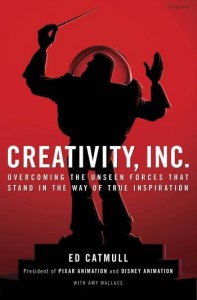
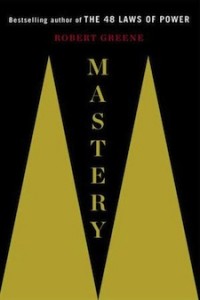
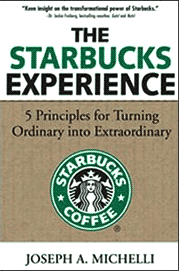
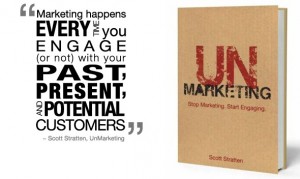
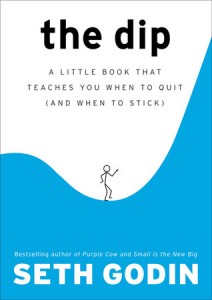
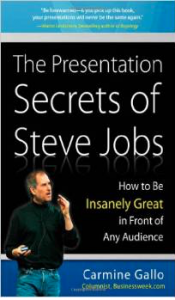
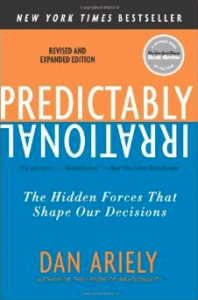
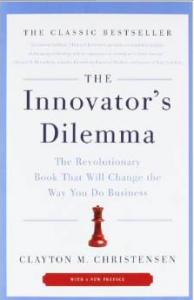
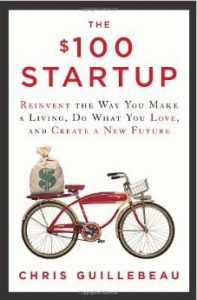
3 Responses to 9 Non-Fitness Books Every Fitness Professional Should Read